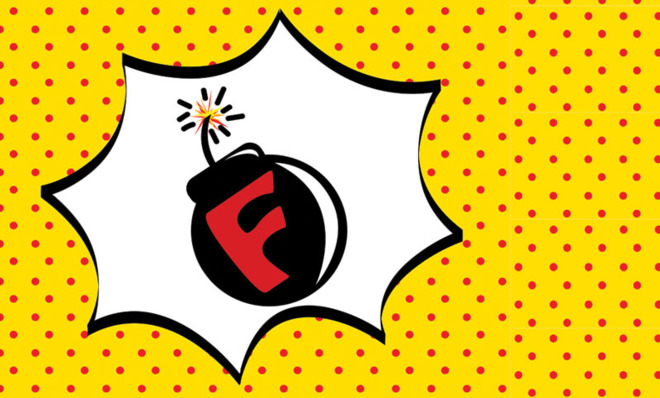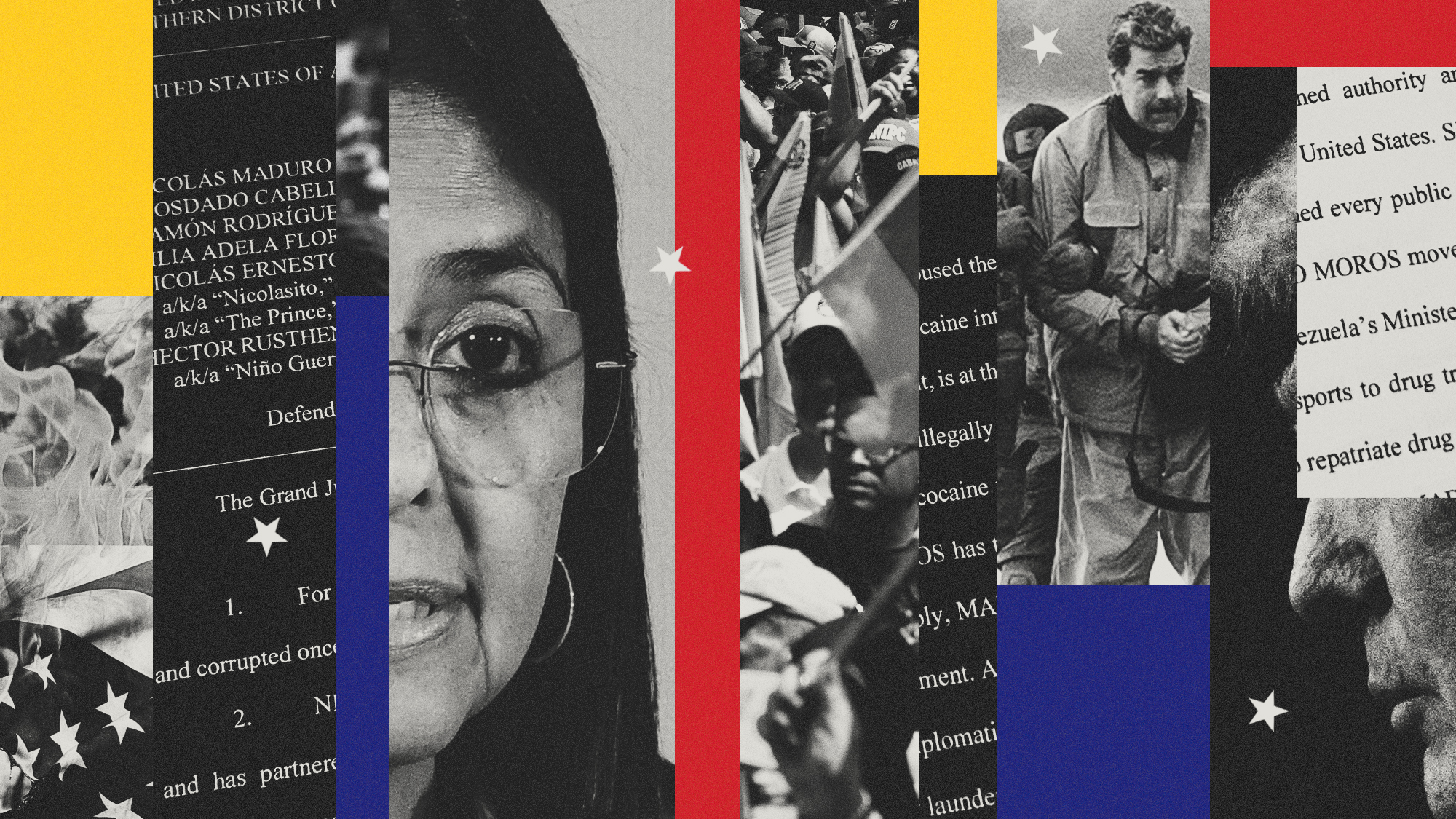Don't buy into nonsensical etymologies of the F-word
Or any other imagineered claims that common words were derived from winking acronyms


When I was young, other kids — and sometimes certain adults — used to half-whisper secret, privileged information. Information about… four-letter words. Information that made me see things in a whole new way. Information that was sometimes conflicting. Information that polluted my mind with disreputable ideas.
I imagine this has happened to you, too.
An older gentleman, maybe, says quietly to you — as one did to me — that "golf" is derived from the saying "Gentlemen Only, Ladies Forbidden." Another, an aesthete, might raise an eyebrow and haughtily declare, "Port Outward, Starboard Home." One of your friends gigglingly hands you something that says "Ship High In Transit." And — oh, most pernicious — that kid on the playground, you know, that one, says a rude word, the rudest, and then explains: "For Unlawful Carnal Knowledge."
The Week
Escape your echo chamber. Get the facts behind the news, plus analysis from multiple perspectives.

Sign up for The Week's Free Newsletters
From our morning news briefing to a weekly Good News Newsletter, get the best of The Week delivered directly to your inbox.
From our morning news briefing to a weekly Good News Newsletter, get the best of The Week delivered directly to your inbox.
Yes. All these people telling you that certain words, certain common words, often certain very profane words, are really acronyms. They stand for something. And it comes with a story.
So alluring. So secret, so inviting.
Don't believe them.
Don't believe anyone who tells you any word more than a century old is an acronym. We just didn't make words that way before then, except very rarely. And when an acronym does have anything to do with a vulgarity, it is to conceal one, not to create one (guess what the F in SNAFU and FUBAR stands for).
A free daily email with the biggest news stories of the day – and the best features from TheWeek.com
Acronyms were never going to be popular before literacy was widespread, of course. If you can't spell, the spelling never comes into it. But even in the 1800s, when literacy was more common, there were only occasional uses of initials to stand for words — mainly in places where full names wouldn't fit nicely, such as company names on crates or boxcars, or military unit names printed on equipment. And those were, as a rule, not pronounced as words. We do have a few older Latin abbreviations, such as A.M. and P.M., but we don't say them as, for instance, "am" and "pum." Until the last century, the closest people normally got to an acronym was acrostics — expanding an existing word, for instance attaching the word CABAL to five ministers of Charles II (Clifford, Arlington, Buckingham, Ashley, and Lauderdale). But nobody thought that was where the word cabal actually came from.
It wasn't until World War II that acronyms really took off, thanks to military terminology — new technology such as RADAR (Radio Detection And Ranging) and SONAR (Sound Navigation And Ranging), official terms such as AWOL (Absent Without Official Leave), quasi-official jargon such as ASAP (As Soon As Possible), and slang terms such as SNAFU (Situation Normal, All F---ed Up). That was when the word acronym was invented… because someone noticed they needed a word for these things.
Even seemingly venerable place names made of syllable acronyms (the first syllables rather than the first letters) aren't that old. SoHo (SOuth of HOuston) in New York and Soweto (SOuth WEstern TOwnships) near Johannesburg both got their names in 1963. SoHo was named under the influence of Soho in London, which was not originally an acronym; the expansion to SOuth of HOlborn is a backronym — an acronym made from an already existing word.
Nowadays, especially with texting but also for many business and technological uses, acronyms have become a good way to save energy and at the same time create something catchy. They're like a magic key to a secret door! So it's not surprising that people might easily believe that some of the more fun words of the language (and some of the less fun ones too) were formed the same way. And if you don't know for sure and you maybe don't know how old the word in question is, what do you do?
RTFM, of course.
LOL. I mean RTD — read the dictionary. Look it up. Online dictionaries such as m-w.com and dictionary.com have etymologies: information on where the words come from. They get this information from scholars who have kept track of where the various forms of the words have been seen throughout historical literature. Etymology only counts when you have citations: actual historical examples of usage. Otherwise, however enticing the account, it's condemned as having "no evidence." Especially if the story relies on historical things that were not known ever to have actually happened.
Are you ready to give up your cherished secrets and party-trick tales — to forsake naughty rumors for some proper lex ed (lexical education)? Here's a quick run-down of words someone may have told you came from acronyms, and where they really came from.
The F-word. "For Unlawful Carnal Knowledge" or "Fornication Under Consent of King"? No. It's from an old Germanic root. Early English spellings of it were different from the modern spelling anyway (two k's or two c's, for instance).
The S-word. The "Ship High In Transit" story is funny and all, but it's just a joke, for heaven's sake. This is another Anglo-Saxon word, and a thousand years ago it was spelled scitte or scitta. Poop decks nothwithstanding, large quantities of manure were never a thing to ship. They make it everywhere, you know.
Posh. This was never stamped on high-class tickets to India to stand for "Port Outward, Starboard Home." That's a made-up story from the mid-20th century. The word seems to come from thieves' slang for a small coin; the word may have originally been borrowed from Romani.
Golf. Regardless of the longstanding prohibition of ladies from some golf clubs (only just this month repealed at the venerable St. Andrews Links), this word does not come from "Gentlemen Only, Ladies Forbidden." It more likely comes from a Dutch word for a club (as in a nine iron, not the clubhouse). Centuries ago it was spelled gouffe.
News. If you think this comes from "North, East, West, South," you have been misdirected. It really just means "new things," like French nouvelles and Dutch nieuws… "new" as a noun in the plural.
Tip. You may think that adding a little something to your restaurant payment is "To Improve Performance" or "To Insure Prompt Service," but no. (Wouldn't it make more sense to give it in advance in that case?) It actually comes from thieves' slang meaning "give."
Cop. A constable on patrol may be a cop, but cop is not from "Constable On Patrol." Our noun cop is from a verb cop meaning "take" or "seize," probably related to Old French caper (think capture).
Coma. A coma may involve "Cessation Of Motor Activity," but that's another backronym. The word is actually taken straight from Greek kóma, "deep sleep."
So remember: Anytime someone tells you an impressive story about a certain word being from an acronym, look it up. Unless it's something recent to do with technology, the military, or popular slang — or it conceals a rude word — you are very likely being told some Basically Useless Language Lie.
James Harbeck is a professional word taster and sentence sommelier (an editor trained in linguistics). He is the author of the blog Sesquiotica and the book Songs of Love and Grammar.
-
 Venezuela’s Trump-shaped power vacuum
Venezuela’s Trump-shaped power vacuumIN THE SPOTLIGHT The American abduction of Venezuelan President Nicolás Maduro has thrust South America’s biggest oil-producing state into uncharted geopolitical waters
-
 Most data centers are being built in the wrong climate
Most data centers are being built in the wrong climateThe explainer Data centers require substantial water and energy. But certain locations are more strained than others, mainly due to rising temperatures.
-
 ‘Maps are the ideal metaphor for our models of what the world might be’
‘Maps are the ideal metaphor for our models of what the world might be’Instant Opinion Opinion, comment and editorials of the day
-
 In the future, will the English language be full of accented characters?
In the future, will the English language be full of accented characters?The Explainer They may look funny, but they're probably here to stay
-
 10 signature foods with borrowed names
10 signature foods with borrowed namesThe Explainer Tempura, tajine, tzatziki, and other dishes whose names aren't from the cultures that made them famous
-
 There's a perfect German word for America's perpetually enraged culture
There's a perfect German word for America's perpetually enraged cultureThe Explainer We've become addicted to conflict, and it's only getting worse
-
 The death of sacred speech
The death of sacred speechThe Explainer Sacred words and moral terms are vanishing in the English-speaking world. Here’s why it matters.
-
 The delicate art of using linguistics to identify an anonymous author
The delicate art of using linguistics to identify an anonymous authorThe Explainer The words we choose — and how we use them — can be powerful clues
-
 Dashes and hyphens: A comprehensive guide
Dashes and hyphens: A comprehensive guideThe Explainer Everything you wanted to know about dashes but were afraid to ask
-
 A brief history of Canadian-American relations
A brief history of Canadian-American relationsThe Explainer President Trump has opened a rift with one of America's closest allies. But things have been worse.
-
 The new rules of CaPiTaLiZaTiOn
The new rules of CaPiTaLiZaTiOnThe Explainer The rules for capitalizing letters are totally arbitrary. So I wrote new rules.
